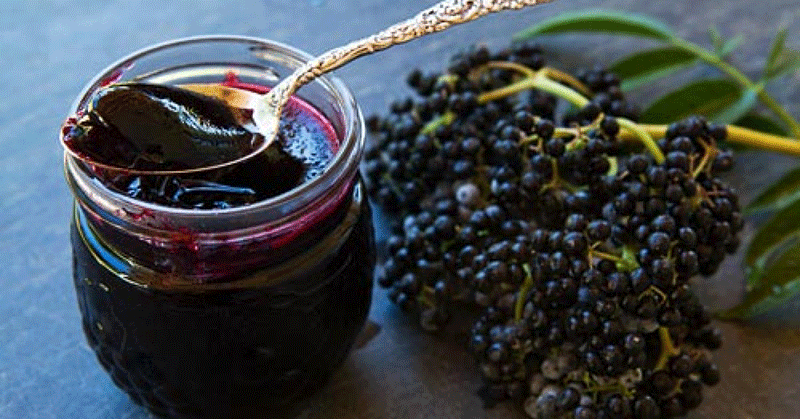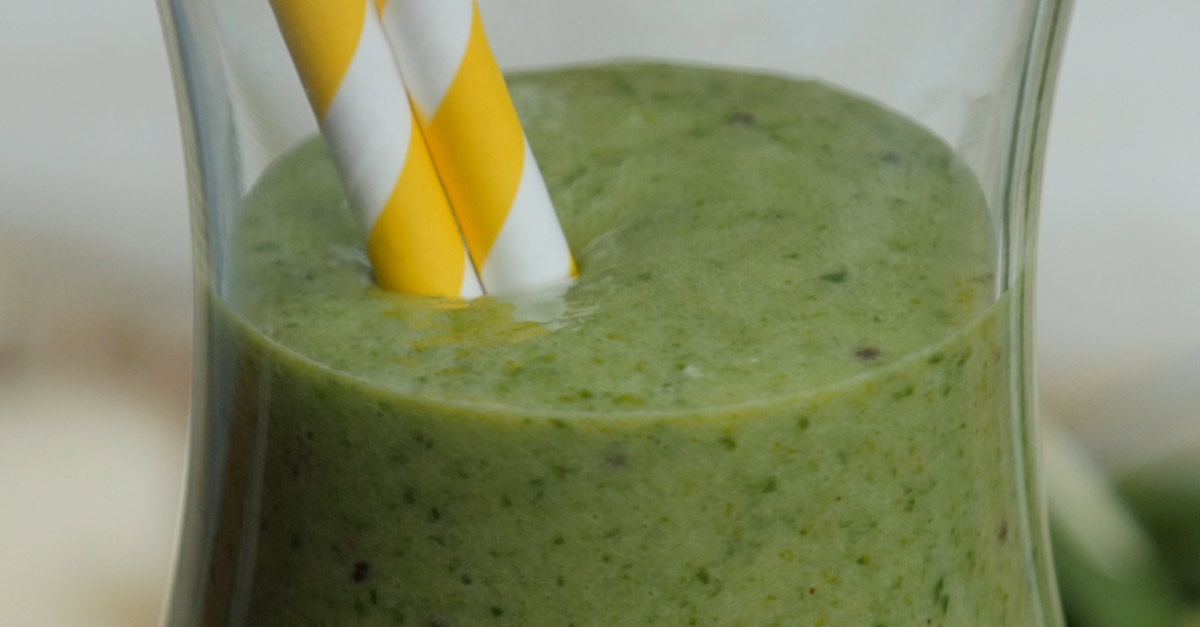The elderberry extract can be your most powerful weapon against influenza, and numerous medical journals have listed it as one of the most effective herbal remedies in the treatment of the flu.
PubMed writes:
"Sambucus nigra L. products "“ Sambucol "“ are based on a standardized black elderberry extract. They are natural remedies with antiviral properties, especially against different strains of influenza virus. Sambucol was shown to be effective in vitro against 10 strains of influenza virus. In a double-blind, placebo-controlled, randomized study, Sambucol reduced the duration of flu symptoms to 3-4 days."
This extract offers numerous health benefits, which have often been scientifically proven, and according to the Journal of International Medical Research:
"Elderberry has been used in folk medicine for centuries to treat influenza, colds and sinusitis, and has been reported to have antiviral activity against influenza and herpes simplex. We investigated the efficacy and safety of oral elderberry syrup for treating influenza A and B infections.
Sixty patients (aged 18 "“ 54 years) suffering from influenza-like symptoms for 48 h or less were enrolled in this randomized, double-blind, placebo-controlled study during the influenza season of 1999 "“ 2000 in Norway. Patients received 15 ml of elderberry or placebo syrup four times a day for 5 days and recorded their symptoms using a visual analog scale.
Symptoms were relieved on average 4 days earlier and use of rescue medication was significantly less in those receiving elderberry extract compared with placebo. Elderberry extract seems to offer an efficient, safe and cost-effective treatment for influenza."
The elderberry has been used for thousands of years, and its medicinal properties have been mentioned in ancient medicinal texts. In 400 BC, Hippocrates referred to it as his "medicine chest" since it offers a myriad of health uses. Additionally, it is also mentioned in the writings of Pliny the Elder about the practices of the ancient Romans.
However, scientists isolated its active compound, known as Antivirin, which is found in proteins of the black elderberry. It has powerful antiviral properties that effectively prevent the spread of the flu virus.
A study has shown that the active components in Sambucol boost the inflammatory cytokine production and thus activate the healthy immune system.
The CDC report that this is particularly beneficial in the case of the Avian flu, which led to death in 60% of the 600 cases reported worldwide. Even though it is rarely transmissible to and between people, its mutation might lead to a deadly pandemic.
"Since the first avian influenza outbreak, in 1997, there has been concern that the influenza A (H5N1) virus might either mutate and adapt to allow efficient transmission during the infection of mammals or reassort its gene segments with human influenza viruses during the coinfection of a single host, resulting in a new virus that would be both highly lethal and transmissible from person to person.
Such events are believed to have preceded the influenza pandemics of 1918, 1957, and 1968. Several lines of evidence indicate that the currently circulating influenza A (H5N1) viruses have in fact evolved to more virulent forms since 1997, with a higher mortality among human cases, different antigenic properties, a different internal gene constellation, and an expanded host range. "
The study conducted by Zacay-Rones in 1995 showed that black elderberry manages to fight against the Avian flu, specifically Panama B strain.
"A standardized elderberry extract, Sambucol (SAM), reduced hemagglutination and inhibited replication of human influenza viruses type A/Shangdong 9/93 (H3N2), A/Beijing 32/92 (H3N2), A/Texas 36/91 (H1N1), A/Singapore 6/86 (H1N1), type B/Panama 45/90, B/Yamagata 16/88, B/Ann Arbor 1/86, and of animal strains from Northern European swine and turkeys, A/Sw/Ger 2/81, A/Tur/Ger 3/91, and A/Sw/Ger 8533/91 in Madin-Darby canine kidney cells.
A placebo-controlled, double-blind study was carried out on a group of individuals living in an agricultural community (kibbutz) during an outbreak of influenza B/Panama in 1993.
Fever, feeling of improvement, and complete cure were recorded during 6 days. Sera obtained in the acute and convalescent phases were tested for the presence of antibodies to influenza A, B, respiratory syncytial, and adenoviruses. Convalescent-phase serologies showed higher mean and mean geometric hemagglutination inhibition (HI) titers to influenza B in the group treated with SAM than in the control group.
A significant improvement of the symptoms, including fever, was seen in 93.3% of the cases in the SAM-treated group within 2 days, whereas in the control group 91.7% of the patients showed an improvement within 6 days (p < 0.001). A complete cure was achieved within 2 to 3 days in nearly 90% of the SAM-treated group and within at least 6 days in the placebo group (p < 0.001).
No satisfactory medication to cure influenza type A and B is available. Considering the efficacy of the extract in vitro on all strains of influenza virus tested, the clinical results, its low cost, and absence of side-effects, this preparation could offer a possibility for safe treatment for influenza A and B. "
This study has provided evidence that Sambucol treats the flu symptoms and accelerates the recovery, in the case of both, Influenza A and Influenza B strains.
Participants who received Sambucol instead of a placebo needed less over- the- counter medications to alleviate the aches, and treat symptoms like congestion, and fever.
"Thom's findings were presented at the 15th Annual Conference on Antiviral Research in 2002. The study has been accepted for publication in the Journal of International Medical Research.
The study involved 60 patients who had been suffering from flu symptoms for 48 hours or less; 90% were infected with the A strain of the virus, 10% were infected with type B. Half the group took 15 milliliters of Sambucol or and the other group took a placebo four times a day for five days.
Patients in the Sambucol group had "pronounced improvements" in flu symptoms after three days: Nearly 90% of patients had a complete cure within two to three days. Also, the Sambucol group had no drowsiness, the downside of many flu treatments. The placebo group didn't recover until at least day six; they also took more painkillers and nasal sprays. "
Therefore, Sambucol prevents the flu, and also reduces its severity and shortens its duration.
The Israeli researchers gave children 1/2 tablespoon of Sambucol extract four times daily, while the adults received 1 tablespoons four times daily. The only elderberry extract used in the study was Sambucol.
The elderberry extract should be stored in a dry and cool place. You can consume it in various ways, directly from the spoon, you can add it to sparkling water, or to a cup of hot water, and sweeten with honey.
There are no reports of any side-effects due to the use of Sambucol, nor any contraindications with medications, but it is always wiser to consult your physician before you start taking any remedy.
It is completely safe for children older than 2 and adults. Researchers are currently investigating the effects of Sambucol in the treatment of inflammatory disorders, allergies, cancer, and HIV.
Source: www.healthy-holistic-living.com
The post Elderberry "“ The Most Anti-viral Fruit Known to Man appeared first on Healthy Life Box.

